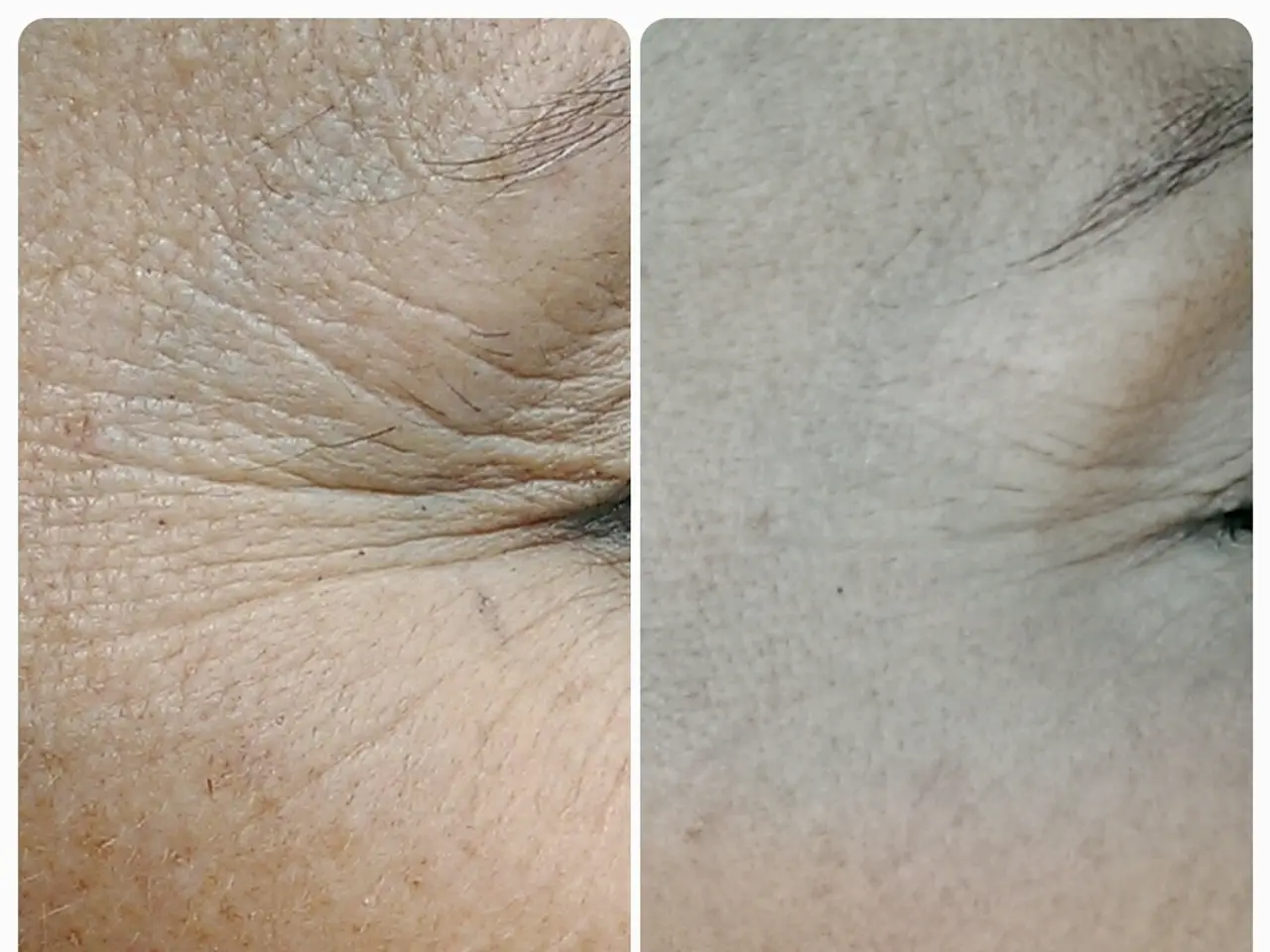Photos for glowing complexion - Photograph of oneself for radiant complexion
In the ever-evolving landscape of healthcare, digital services are increasingly becoming an integral part of the system in Germany. This is particularly true in the region of Hesse, where health insurance companies are embracing technology to improve accessibility and efficiency.
One such initiative is the digital skin check service, which allows insured members to seek dermatological advice online. According to AOK, the largest health insurance company in Hesse, this offer is "pioneering" and has seen a significant increase in demand, with a growth of 180% compared to the previous year in 2024.
The DAK, another major player in Hesse's health insurance market, offers a video consultation and an app for dermatological questions, complete with the option to upload photos for assessment. The DAK's service guarantees dermatological feedback, suggestions for further therapy, and prescriptions within 24 hours. Similarly, the Barmer's Teledoktor is reachable via app and phone for an initial assessment of dermatological abnormalities.
Despite the growing popularity of these services, it's worth noting that they are not intended to replace in-person skin cancer screenings. A substantial 85% of cases can be resolved digitally, according to AOK, but the rest are recommended for a personal examination.
The German Association of Dermatologists (BVDD) has voiced concerns about the Barmer's offer, stating that it could potentially push difficult and time-consuming cases to dermatological practices. However, all health insurance companies in Hesse stress the importance of regular in-person check-ups.
Despite the criticisms and concerns, the demand for online dermatological consultations is high across all Hesse health insurance companies. In 2024, only 3,350 requests were registered for Hessian insured members with the DAK.
While the exact popularity and current status of these digital skin check services in Hesse are not yet clear, it's evident that they are part of a wider trend towards integrating digital health services into the German healthcare system. The use of electronic health records and telehealth services is becoming more common, as seen in various discussions and studies on digital health at conferences like the 18th EPH Conference.
For the most accurate and up-to-date information, it would be best to consult directly with health insurance companies operating in Hesse or check recent publications from German health organizations.
In this context, the community policy could outline guidelines for the effective implementation and use of digital skin check services by health insurance companies in Hesse. Vocational training programs might be initiated to educate healthcare professionals on digital health services and telemedicine, particularly in the field of dermatology, to expand the current health-and-wellness offerings. Additionally, it's conceivable that skin-care companies may partner with these insurance providers to offer personalized skincare recommendations and advice through their digital platforms.




